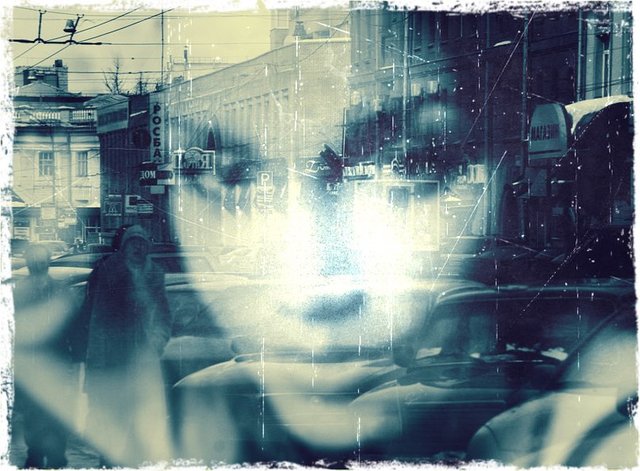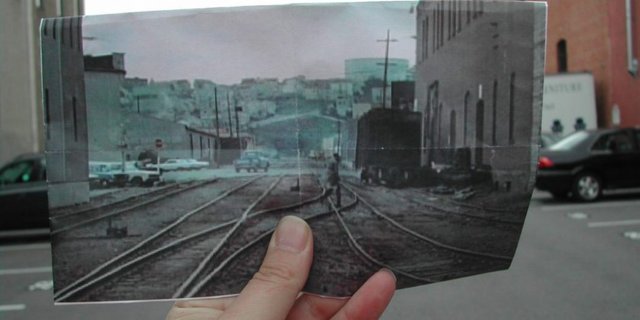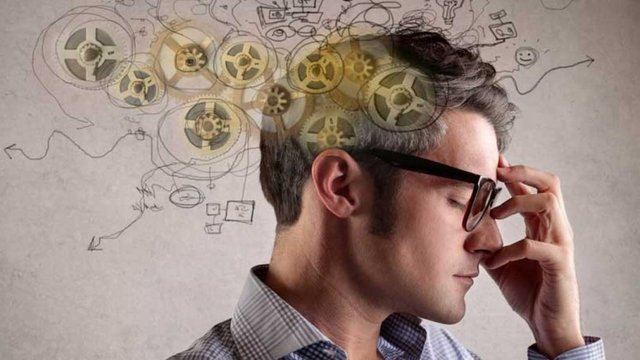The effect of deja vu

This phenomenon is studied from ancient times. Aristotle one of the first carried a sense of deja vu to a special mental state arising in the course of influence of certain factors on the mental and mental organization of man. The most active research of deja vu began with the 19th century thanks to the book Emile Baraka "the Future of psychology." The researcher raised a phenomenal at that time the subject of deja vu, also identifying several similar mental States. The antithesis of deja vu – the concept of "jamais vu" is also one of the symptoms of mental disorders. While the effect of "already seen" refers exclusively to the game of consciousness. The meaning of "jamais vu" means "never seen".
Rendezvous is a special state of mind in which the individual feels as if everything is happening not unfamiliar to him – as if he was in this situation. While the feeling is not linked to a specific point in the past, but simply gives the impression of something already familiar. This is a fairly common phenomenon, and many people want to know why there is an effect of deja vu. We consider the scientists in this article.
Why is the effect of deja vu?
The state of deja vu reminiscent of the view of the movie you saw so long ago that not remember or when it was, under any circumstances, and learn only individual motives. Some people even try to remember what will happen in the next moment, but it fails. But as soon as the events start to develop as a person understands that knew that everything continues that way. The result is the impression that you knew in advance the entire sequence of events.
Scientists have put forward different hypotheses about what actually is the effect of deja vu. There is a theory that the brain can change the way of coding time. In this case, the time is encoded as "present" and "past". This can sometimes be a temporary detachment from reality and a sensation that it already was.
Another version of deja vu is called unconscious processing of information during sleep. That is in fact the person experiencing deja vu, recalls a similar situation he once had and was very close to reality.

The opposite effect of deja vu: jamais vu
Of jamais vu – the term derived from the French phrase "Jamais vu", which translates as "never seen". This is the state that is the opposite of déjà vu at its core. In the course of a person suddenly feels that familiar place, event or person seem unfamiliar, new and unexpected. It seems as if knowledge had disappeared from memory.
This phenomenon is very rare, but it is often repetitive. Doctors believe that is a symptom of a mental disorder – epilepsy, schizophrenia or organic psychosis senile.
Why a sense of deja vu frequently?
Studies show that in the modern world 97% of healthy people at least once in my life felt this effect. More often it happens to those who suffer from epilepsy. It is also interesting that still failed even once to cause a sense of deja vu artificial ways.
Usually the person experiencing deja vu quite rare – this makes it difficult to study this phenomenon. Currently, scientists want to know why epilepsy patients and some healthy people experience this several times a year or even a month, but so far the answer is not found.

In the modern work "the Phenomenon of deja vu" Andrew Barrow, you can see the conclusions about what in fact the cause of feelings can be called unusual layering on each other of two situations: one of them hosted the why is there, dejavue have been experienced in the past, and the other is experienced in the present.
This layering has its conditions: need to change the structure of time in which the future is imprinted in the present, which man can see his existential project. In this process, the future stretched, entirely encompassing the past, present and future.
It is worth noting that currently none of the versions were never recognized as official, because this elusive phenomenon difficult to study, classify and analyze. Besides, there's still people. Who's never experienced deja vu, so the question about its true prevalence remains open.

There is another version of why this phenomenon occurs. It is associated with a long-recognized, but forgotten to date information. This may be a once-read book with some interesting facts and sights, viewed the film, heard the melody, etc. In certain time brain revives a long-recognized information, combining it with elements of what is happening in the present. In real life, there are a huge number of such cases, therefore, our simple curiosity can become a cause of deja vu.
Of jamais vu – the term derived from the French phrase "Jamais vu", which translates as "never seen". This is the state that is the opposite of déjà vu at its core. In the course of a person suddenly feels that familiar place, event or person seem unfamiliar, new and unexpected. It seems as if knowledge had disappeared from memory.
This phenomenon is very rare, but it is often repetitive. Doctors believe that is a symptom of a mental disorder – epilepsy, schizophrenia or organic psychosis senile.
Why a sense of deja vu frequently?
Studies show that in the modern world 97% of healthy people at least once in my life felt this effect. More often it happens to those who suffer from epilepsy. It is also interesting that still failed even once to cause a sense of deja vu artificial ways.
Usually the person experiencing deja vu quite rare – this makes it difficult to study this phenomenon. Currently, scientists want to know why epilepsy patients and some healthy people experience this several times a year or even a month, but so far the answer is not found.
This layering has its conditions: need to change the structure of time in which the future is imprinted in the present, which man can see his existential project. In this process, the future stretched, entirely encompassing the past, present and future.
It is worth noting that currently none of the versions were never recognized as official, because this elusive phenomenon difficult to study, classify and analyze. Besides, there's still people. Who's never experienced deja vu, so the question about its true prevalence remains open.
interesting post!
Thx!
Nice @konstantin
Shot you an Upvote :)
Keep up the great work @konstantin
Upvoted
Upvoted
Nice @konstantin
Shot you an Upvote :)
Nice @konstantin
Shot you an Upvote :)
Hi! This post has a Flesch-Kincaid grade level of 9.2 and reading ease of 62%. This puts the writing level on par with Michael Crichton and Mitt Romney.